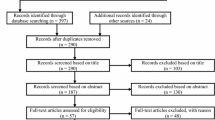Abstract
OBJECTIVE: To improve functional status among primary care patients.
INTERVENTION: 1) Computer-generated feedback to physicians about the patient’s functional status, the patient’s self-reported “chief complaint,” and problem-specific resource and management suggestions; and 2) two brief interactive educational sessions for physicians.
DESIGN: Randomized controlled trial.
SETTING: University primary care clinic.
PARTICIPANTS: All 73 internal medicine houseofficers and 557 of their new primary care patients.
MEASURES: 1) Change in patient functional status from enrollment until six months later, using the Functional Status Questionnaire (FSQ); 2) management plans and additional information about functional status abstracted from the medical record; and 3) physician attitude about whether internists should address functional status problems.
RESULTS: Emotional well-being scores improved significantly for the patients of the experimental group physicians compared with those of the control group physicians (p<0.03). Limitations in social activities indicated as “due to health” decreased among the elderly (>70 years of age) individuals in the experimental group compared with the control group (p<0.03). The experimental group physicians diagnosed more symptoms of stress or anxiety than did the control group physicians (p<0.001) and took more actions recommended by the feedback form (p<0.02).
CONCLUSIONS: Computer-generated feedback of functional status screening results accompanied by resource and management suggestions can increase physician diagnoses of impaired emotional well-being, can influence physician management of functional status problems, and can assist physicians in improving emotional well-being and social functioning among their patients.
Similar content being viewed by others
References
Reinertsen JL. Outcomes management and continuous quality improvement: the compass and the rudder. Q Rev Bull. 1993;19(1):5–7.
Lansky D, Butler JB, Waller FT. Using health status measures in the hospital setting: from acute care to outcomes management’. Med Care. 1992;30(5 suppl):MS57-MS73.
Nerenz DR. Repasky DP, Whitehouse FW, et al. Ongoing assessment of health status in patients with diabetes mellitus. Med Care. 1992;30(5 suppl):MS112-MS124.
Rubenstein LV, Calkins DR, Young RT, et al. Improving patient function: a randomized trial of functional disability screening. Ann Intern Med. 1989;111:836–42.
Calkins DR, Rubenstein LV, Cleary PD, et al. Failure of physicians to recognize functional disability in ambulatory patients. Ann Intern Med. 1991;114:451–4.
Calkins DR, Rubenstein LV, Cleary PD, et al. Functional disability screening of ambulatory patients: a randomized controlled trial in a hospital-based group practice. J Gen Intern Med. 1994;9:590–2.
Jette AM, Davies AR, Calkins DR, et al. The Functional Status Questionnaire: its reliability and validity when used in primary care. J Gen Intern Med. 1986;1:143–9.
Katz JN, Larson MG, Phillips CB, et al. Comparative measurement sensitivity of short and longer health status instruments. Med Care. 1992;30:917–25.
Stewart AL, Ware JE Jr (eds). Measuring Functioning and Well Being: The Medical Outcomes Study Approach. Durham, NC: Duke University Press, 1992.
Ewing JA. Detecting alcoholism: the CAGE questionnaire. JAMA. 1984;252:1905–7.
McCoy JM, Rubenstein LV, Barrett PA, et al. A feedforward system for functional status information. Symposium on Computer Applications in Medical Care, Washington, DC. 1988;63:283–7.
Lipkin M, Kupka K. Psychosocial Factors Affecting Health. New York: Praeger Publishers, 1982;374.
Lieberman RP, King LW, DeRisi WJ, et al. Personal Effectiveness. Champaign, IL: Research Press. 1975;87.
Miller WH, Heinrich RL. Personal Stress Management for Medical and Dental Patients. Los Angeles: PSM Press, 1984.
McDaniel JW. Physical Disability and Human Behavior. 2nd ed. New York: Pergamon Press, 1976;165.
Hingson R, Scotch NA, Sorenson J. et al. In Sickness and in Health. St. Louis: C. V. Mosby, 1981;289.
Verbrugge LM. Physical and social disability in adults in primary care research: theory and methods. In: Hibbard H, Nutting PA, Grady MC (eds). Primary Care Research. Washington, DC: U.S. Department of Health and Human Services, Public Health Service. Agency for Health Care Policy and Research, 1991;31–58.
Nagi S. Disability concepts revisited: implications for prevention. In: Disability in America, Appendix A. Washington, DC: Institute of Medicine. National Academy Press, 1991;309–27.
Rubenstein LZ, Rubenstein LV. Multidimensional assessment of elderly patients. Adv Intern Med. 1990;36:81–107.
Wasson J, Keller A. Rubenstein L, et al. The Dartmouth Primary Care COOP Project. Benefits and obstacles of health status assessment in ambulatory settings: the clinician’s point of view. Med Care. 1992;30(5 suppl):MS42-MS49.
Wasson J, Hays R, Rubenstein L, et al. The short-term effect of patient health status assessment in a health maintenance organization. Q Life Res. 1992;1:99–106.
Badger LW. Rand EH. Unlearning psychiatry: a cohort effect in the training environment. intl J Psychiatry Med. 1988;18:123–35.
Hoeper EW. Kessler LG, Nycz G, et al. The usefulness of screening for mental illness. Lancet. 1984;1:33–5.
Linn L, Yager J. The effect of screening, sensitization, and feedback on notation of depression. J Med Educ. 1980;55:942–9.
Wells KB. Stewart A, Hays RD, et al. The functioning and well-being of depressed patients: results from the Medical Outcomes Study. JAMA. 1989;262:914–9.
Stewart AL, Greenfield S, Hays RD. et al. Functional status and well-being of patients with chronic conditions: results from the Medical Outcomes Study. JAMA. 1989;262:907–13.
Epstein AM. Hall JA, Fretwell M, et al. Consultative geriatric assessment for ambulatory patients: a randomized trial in a health maintenance organization. JAMA. 1990;263:538–44.
Tierney WM, Hui SL. McDonald CJ. Delayed feedback of physician performance versus immediate reminders to perform preventive care: effects of physician compliance. Med Care. 1986;24:659–67.
Wasson J, Gaudette C, Whaley F, et al. Telephone care as a substitute for routine clinic follow-up. JAMA. 1992;267:1788–93.
Pauly MV, Eisenberg JM, Radany MH, et al. Paying Physicians: Options for Controlling Cost, Volume and Intensity of Services. Ann Arbor, MI: Health Administration Press, 1992.
Author information
Authors and Affiliations
Additional information
Supported by the Robert Wood Johnson Foundation. The opinions and conclusions herein are those of the authors and do not necessarily represent the views of the Sepulveda VA, UCLA, CSUF, Rand, or the Robert Wood Johnson Foundation.
Rights and permissions
About this article
Cite this article
Rubenstein, L.V., McCoy, J.M., Cope, D.W. et al. Improving patient quality of life with feedback to physicians about functional status. J Gen Intern Med 10, 607–614 (1995). https://doi.org/10.1007/BF02602744
Issue Date:
DOI: https://doi.org/10.1007/BF02602744




